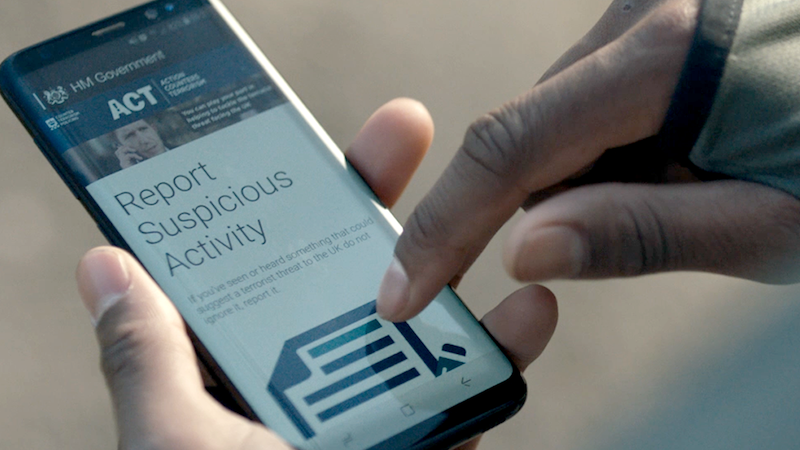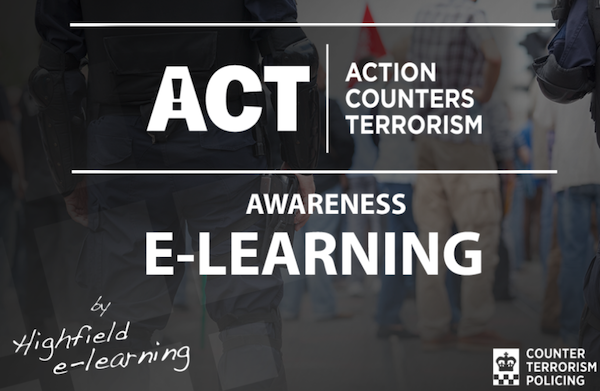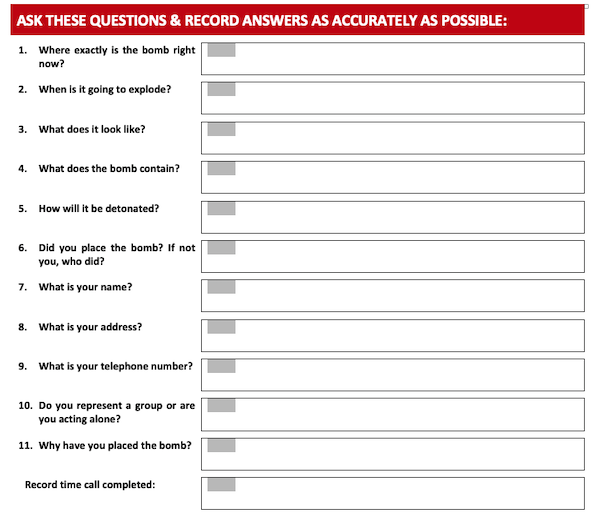


Guernsey Police are encouraging everyone in the island to take part in a free, online counter terrorism training course, so Express Reporter Maisie Foote gave it a go to find out how we can all be better prepared.
The 'Action Counters Terrorism' (or ACT) course was previously only available to staff working in crowded venues in the UK, but has recently been rolled out to the rest of the nation.
It's completely free and took about an hour to complete, although it is possible to save your progress and pick up where you left off another time.
With the UK's MI5 threat level currently at 'substantial', the course explains how "all of us have a responsibility to keep ourselves safe".
It seemed a bit daunting at first because I had never before considered coming up with a plan for what I would do if I witnessed a terrorist attack.
Would I be able to recognise suspicious behaviour? How would I respond to a bomb threat? Where would I go in a firearms attack?
Although these are situations I hope I will never have to face, I suddenly felt very unprepared.
The course begins with a series of news clips about previous terror attacks, which not only highlight the extent of the problem but also give information on the different types of attacks. You are then asked to complete a number of activities - one for each of the seven modules - which test your knowledge, instincts and reactions.
In the first you are asked to spot the 'vulnerabilities' in a video of a suspicious man walking through a hospital. For example, staff leaving the door open to let the unknown man through would be considered a 'vulnerability'. At first I was quite confident but that changed after I found out I only spotted around half of the problems.

Pictured: The course is now available to everyone for free.
Some of the issues, such as an external delivery driver wearing a helmet inside, I hardly even registered but were pointed out as being 'vulnerabilities' in practice.
So what constitutes suspicious behaviour?
It seems difficult to come up with a direct answer, as it all depends on how the behaviour is being carried out, who is doing it and why. If a staff member at a retail outlet is seen wandering around the stockroom no questions are asked, but if a member of the public is doing so without valid reason, concerns may be raised.
According to the ACT course, more than 250,000 items were left at UK train stations last year but only one percent needed police intervention.
However, it points out the importance of being vigilant and reporting incidents you find suspicious. Even if they turn out to be trivial, using your initiative and reporting behaviour or items that are out of the ordinary could save lives.

Pictured: The training covers seven modules.
The training gives advice on what to do if you find a suspect package, with useful tips like getting about a seven minute walk away and not using a mobile phone or radio within 15m of it.
More often than not, bomb threats are a hoax but all threats should be reported to police as quickly as possible by calling 999. The course provides instructions on what to do if someone makes a threat, which include staying calm, allowing the person to speak without interruption and recording as much information as possible while discreetly raising alarm.
Of course, not all attacks involve bombs and ACT takes trainees through the 'Run. Hide. Tell.' strategy, which should be used during a firearms or weapons attack and has been proved to save lives.
The course comes to an end with an eye witness account of the 2015 Tunisia beach shooting. The woman, who was on holiday there at the time, used her counter terrorism knowledge and the 'Run. Hide. Tell.' strategy to get to safety.

Pictured: Trainees are given a number of resources including a 'bomb threat actions checklist'.
"I recommend and support this national Action Counters Terrorism online training course package," said Protect and Prepare Chief for Guernsey Police, J-P Le Breton. "While we are very fortunate to have not experienced a terrorist attack, the threat assessment equally applies to crown dependencies and we should and must not be complacent due to the fortunate secure and safe environment in which we live."
Although I don't think I will ever feel prepared for a terrorist attack, I do feel better informed after completing the course, which is available to everyone here.
Comments
Comments on this story express the views of the commentator only, not Bailiwick Publishing. We are unable to guarantee the accuracy of any of those comments.